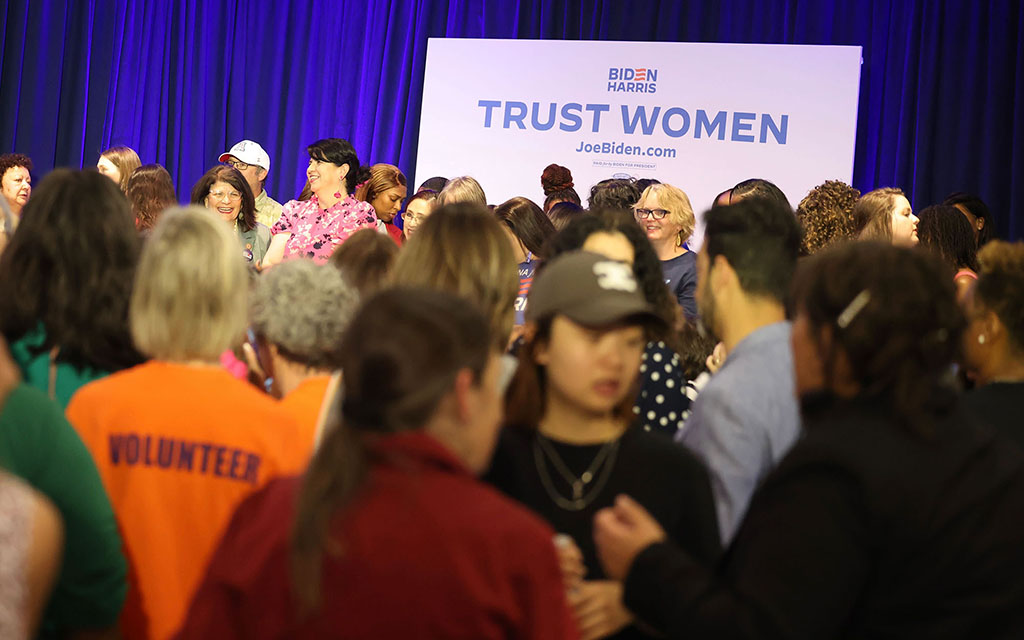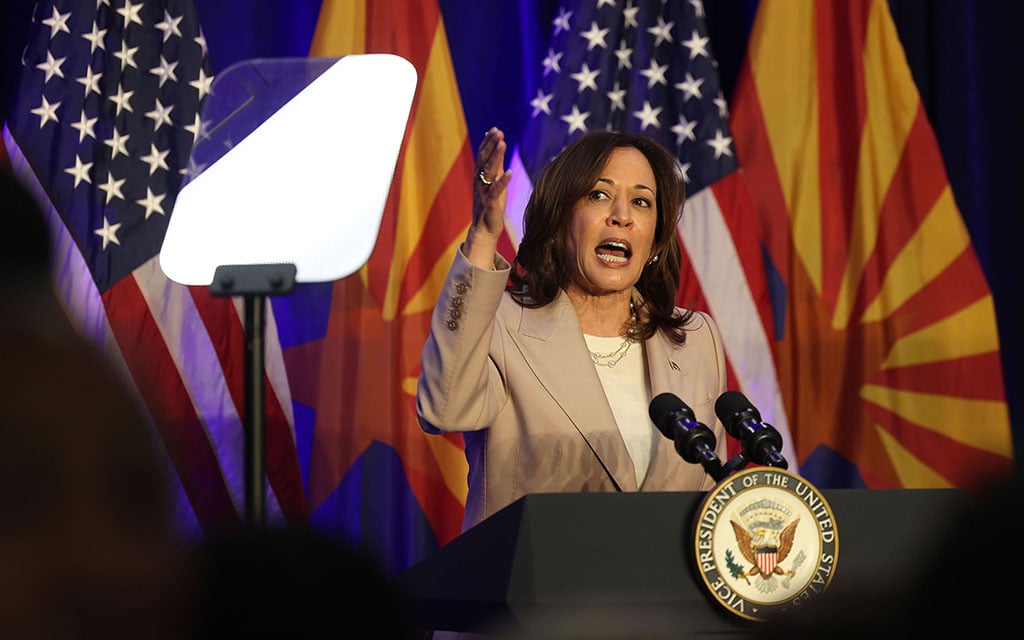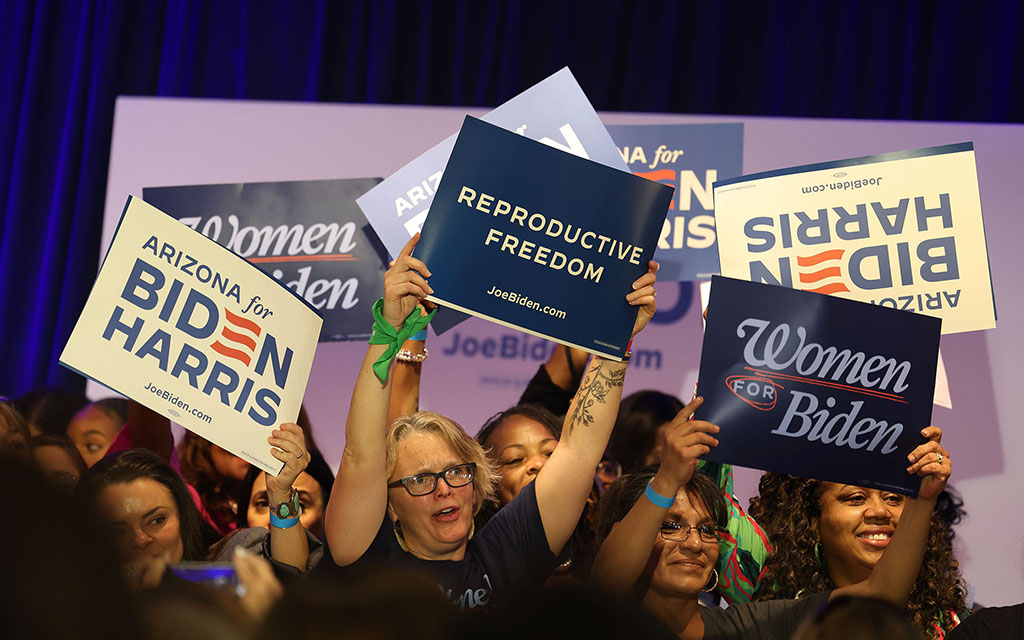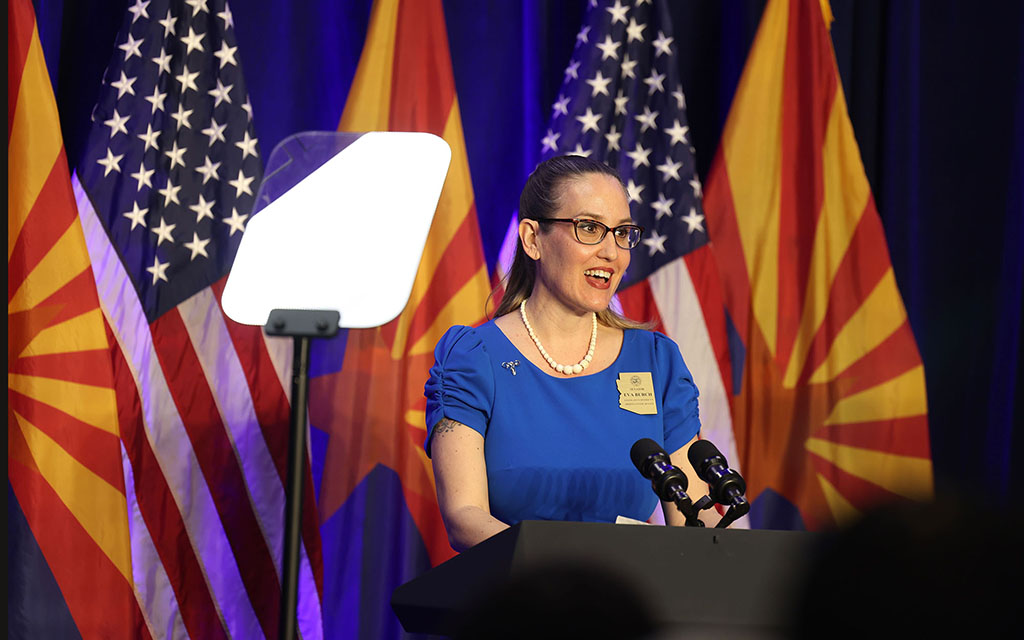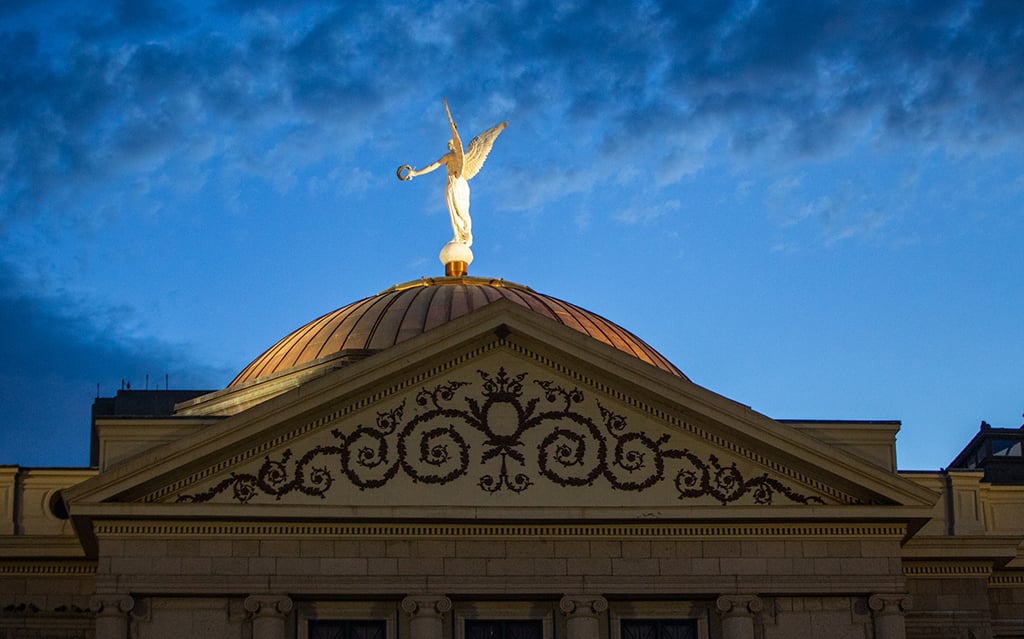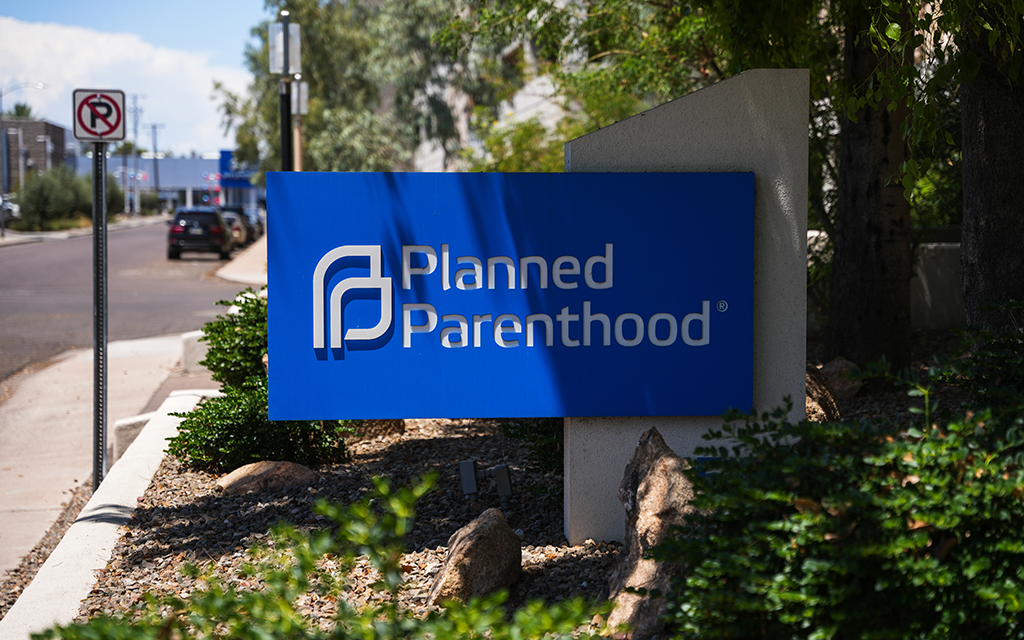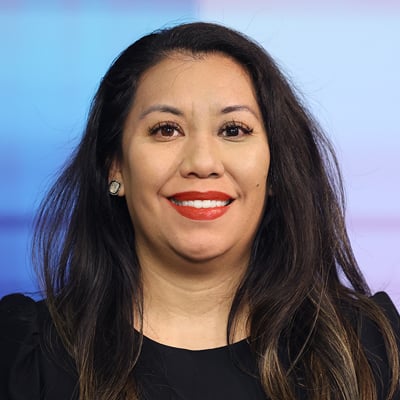TUCSON – Vice President Kamala Harris blasted former President Donald Trump Friday as “the architect” of new abortion restrictions sweeping the country, including the near-total ban that was resurrected this week in Arizona.
The hastily arranged Tucson campaign stop came just three days after a divided Arizona Supreme Court ruled that, since the U.S. Supreme Court overturned its Roe v. Wade decision in 2022, an 1864 abortion ban that was still on the books in Arizona was back in effect.
“What has happened here in Arizona is a new inflection point. It has demonstrated, once and for all, that overturning Roe was just the opening act … of a larger strategy to take women’s rights and freedoms,” said Harris, who called the Arizona ruling “one of the biggest aftershocks” of the reversal of Roe.
“Donald Trump is the architect of this health care crisis,” Harris said. “And as much harm as he has already caused, a second Trump term would be even worse.”
Trump has bragged repeatedly in the past about appointing three U.S. Supreme Court justices who tilted the court in favor of overturning the federal right to an abortion in Roe and returning that power to the states. But he said in a social media post Friday that Arizona “went too far” and he called on state lawmakers to rein in the law.
“Remember, it is now up to the States and the Good Will of those that represent THE PEOPLE,” Trump said in a Friday morning post on Truth Social. “We must ideally have the three Exceptions for Rape, Incest, and Life of the Mother.”
Trump, who accused Democrats of being extremists on the issue, also said earlier this week that he would not sign a federal abortion ban, a comment made in response to the Arizona ruling.
After Roe was reversed, Arizona courts were asked to decide if the 1864 law – which makes it a felony to provide an abortion except to save the life of the mother – overrode a law passed in 2022 that allowed abortions up to 15 weeks of pregnancy, with exceptions for medical emergencies.
A divided Arizona Supreme Court said Thursday that the only reason the 1864 law had been on hold was because of Roe. Once that was overturned, the 19th century law was back in effect, the justices said.
As Harris outlined the restrictions in the territorial-era law, a crowd of more than 100 invited guests who were packed into a meeting room chanted “shame, shame.” They cheered as Democrats on the stage blasted Trump and the GOP.
“We need to fight back,” said Rep. Ruben Gallego, D-Phoenix, who is running for Senate this fall. “We need to turn that pain, that heartbreak, that anger, and that shock into action.”
For Gallego, that action includes beating Kari Lake, the front-runner for the GOP nomination for Senate this fall. Lake, like Trump, said this week that the 1864 law is out of line with what Arizona voters want, but Gallego has repeatedly pointed to Lake calling the near-total ban a “great law” in a 2022 interview.
Gallego was one of a half-dozen elected Democrats flanking Harris on Friday, including state Sen. Eva Burch, D-Mesa, who made national headlines in March when she announced on the Senate floor that she was going to have an abortion after learning that her pregnancy was not viable.
“Today, I am livid that in spite of all of our progress, we have rolled the clock back 160 years here in Arizona,” she said Friday. “The decision about when and how to start a family belongs to all of us as individuals. It belongs to me and nobody else.”
Burch touted the proposed ballot initiative that would amend the Arizona Constitution to allow abortions up to fetal viability, and include exemptions for the life, physical, and mental health of the mother.
Backers to that initiative announced last week that they had already collected more than 500,000 signatures, far more than the 383,923 necessary by July 1 to get the measure on the ballot in November. And volunteers from Arizona for Abortion Access were outside Friday’s campaign event looking to collect more signatures.
“I know that it’s hard for people to share the most private moments of their lives at a time when they’re feeling a loss, when they’re feeling vulnerability,” Burch said. “But it’s moments like those that remind people how much is at stake if we don’t speak out.”

